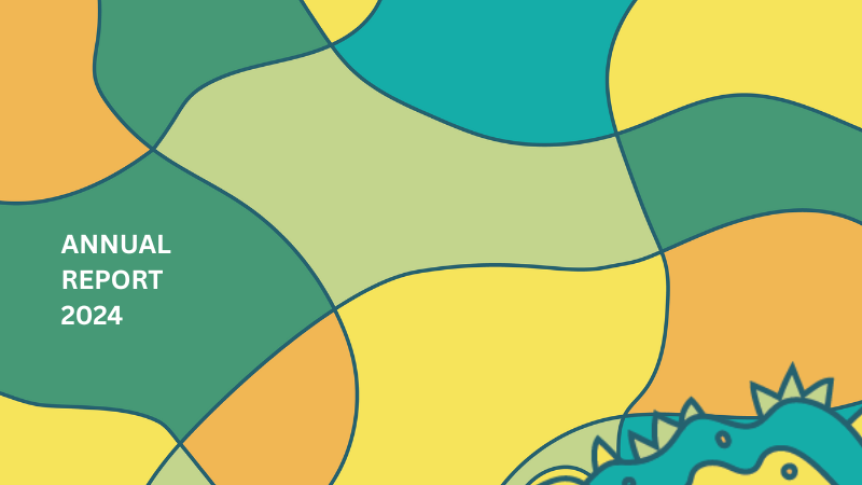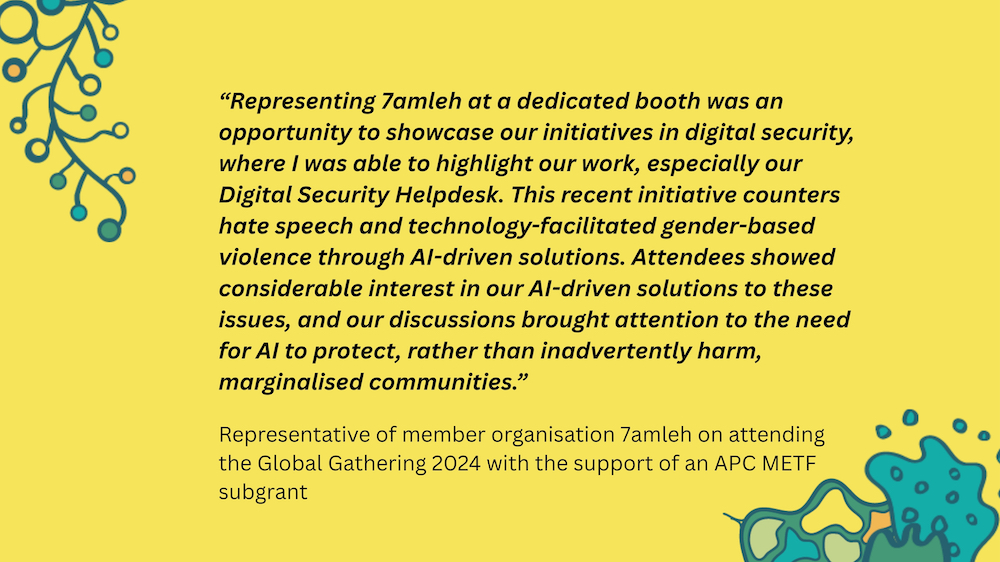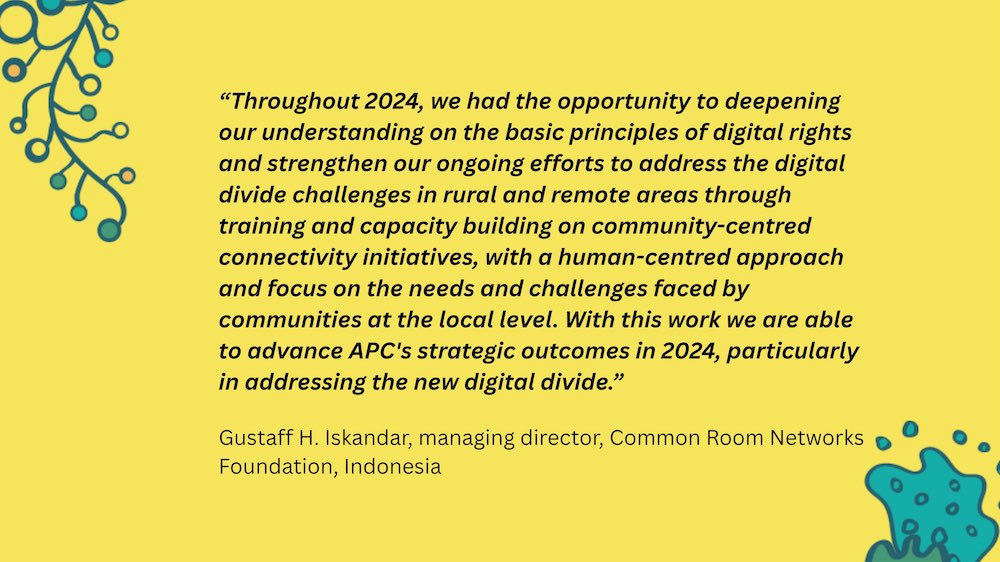
We’ve just released our latest annual report, highlighting the impact of APC’s community throughout 2024, which marked our first year of implementing a new Strategic Plan guiding our work through to 2027.
This plan is being implemented in a context of heightened global distress, and a pervasive sense of uncertainty and rapid change. It is marked by a horrific intensification of violence and an escalation of crises, conflicts, war and genocide, in which digital technologies have aggravated human rights violations. It is a context that is characterised by the rapid digitalisation and datafication of societies, a resurgence of right-wing nationalism and fundamentalism in many countries, alongside the legitimisation of misogyny and anti-rights discourses, and the increasing precarity of Black, brown and diverse bodies. In light of this, relying on our community and joint action was even more crucial.
"The APC network's experience of over 30 years has taught us that movements are often the most potent way to hold powerful state and non-state actors to account and create change," highlights Chat Garcia Ramilo, APC's executive director.
Our annual report shows that together we have continued to raise our voices and push for intersectional common agendas, as well as amplifying rights and justice perspectives in digital tech and rights discourses. We are collectively shaping digital standards, policies, processes, and norms, while also building our collective capacity for safety, care, and resilience.
But how does all this translate into practice? In a series of four piece of news, we will present some concrete examples, organised according to the four outcome areas of our strategic plan focused on creating impact on ourselves and the world. Here, we invite you to continue reading about how we are building intersectional common agendas. At the same time, we invite you to explore our annual report and join us in taking action towards our vision of a future in which all people, particularly the marginalised, is able to use and shape the internet and digital technologies to create a just and sustainable world. Read on!
APC members were able to influence their governments and institutions through collaborations and collective network action. They were able to strengthen their connections, explore shared concerns and influence change through collaborations and collective contributions, supported by a cycle of member subgranting in 2024. Through 31 advocacy and institutional strengthening grants, members of the APC network were able to work on projects in the areas of community-centred connectivity, environmental monitoring, institutional strengthening, resisting information disorders and tech-facilitated gender-based violence, among others.
We helped build shared understandings of digital rights challenges faced across the world by engaging in important regional and global events. These included the Global Gathering in Portugal, the 2024 Digital Rights Asia-Pacific Assembly (DRAPAC24) in Taipei, and the annual AWID Forum in Bangkok. Fifteen members were able to participate in key global and regional events throughout the year through resources from our Member Engagement and Travel Fund.

A knowledge exchange between APC members contributed to South Korean legislators amending laws to permit municipal internet in 2023-2024. South Korea’s National Assembly passed legislation enabling municipal governments to provide public internet services. The legal reform (amendment of Article 7, Telecommunication Enterprise Act) was significant for ending market failure and resulting in 15,000+ free Wi-Fi points deployed in Seoul throughout 2024. An APC-facilitated knowledge exchange between members Open Net Korea and guifi.net (Catalonia) supported advocacy efforts using evidence of successful models to overcome decades-old privatisation ideology.

We collectively articulated a new approach for community-centred connectivity which has since been adopted as both a framework and narrative by actors in the field. In 2024, connectivity practitioners shifted their conceptual understanding by expanding definitions of "community networks" to the broader spectrum defined by the Local Network (LocNet) initiative's 13 principles and 11 typology characteristics of “community-centred connectivity initiatives”, explicitly including social enterprises and public services. This provides a concrete framework designed for scaling in unserved communities that acknowledges diverse models, resolves historical vagueness and enables better planning and analysis.